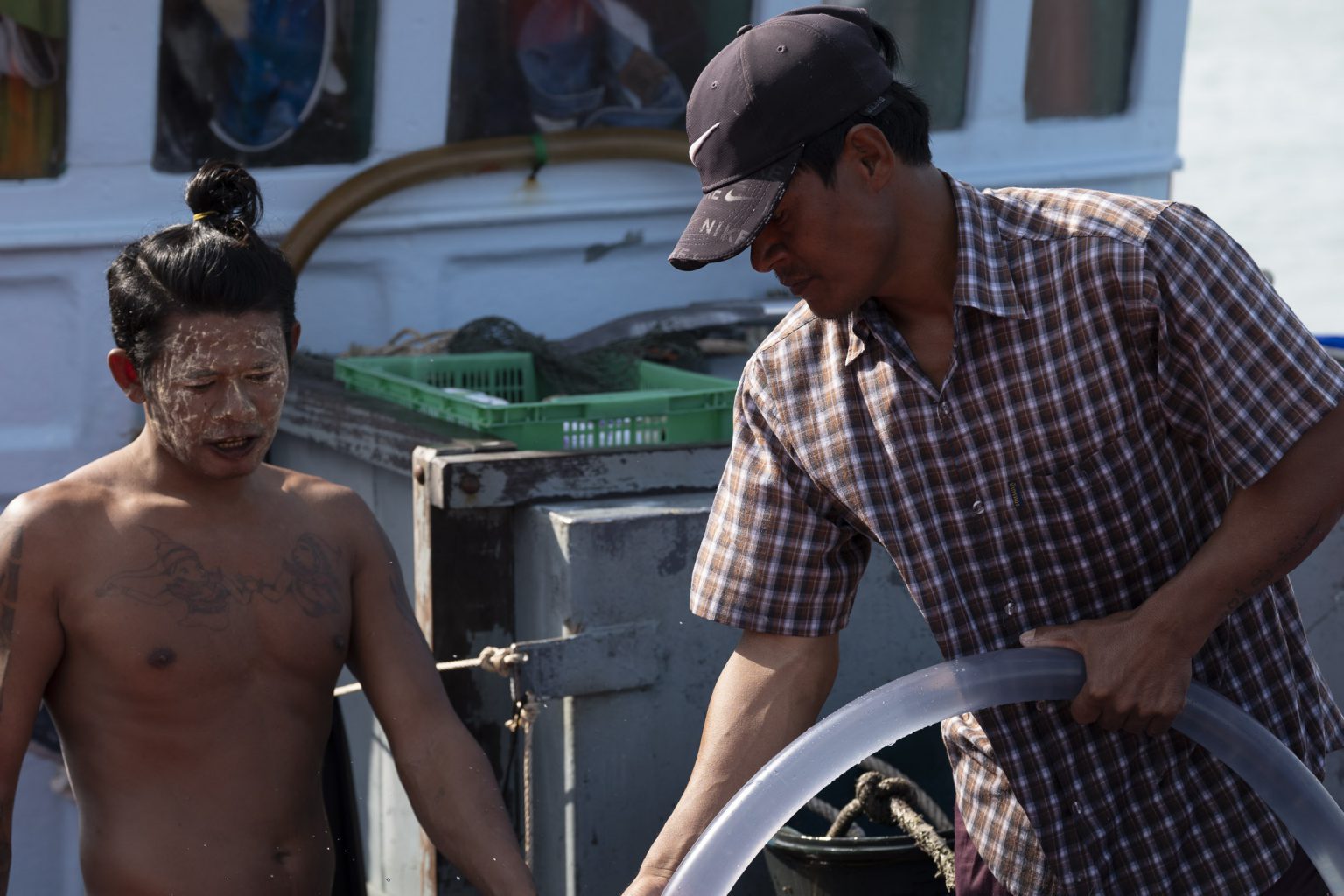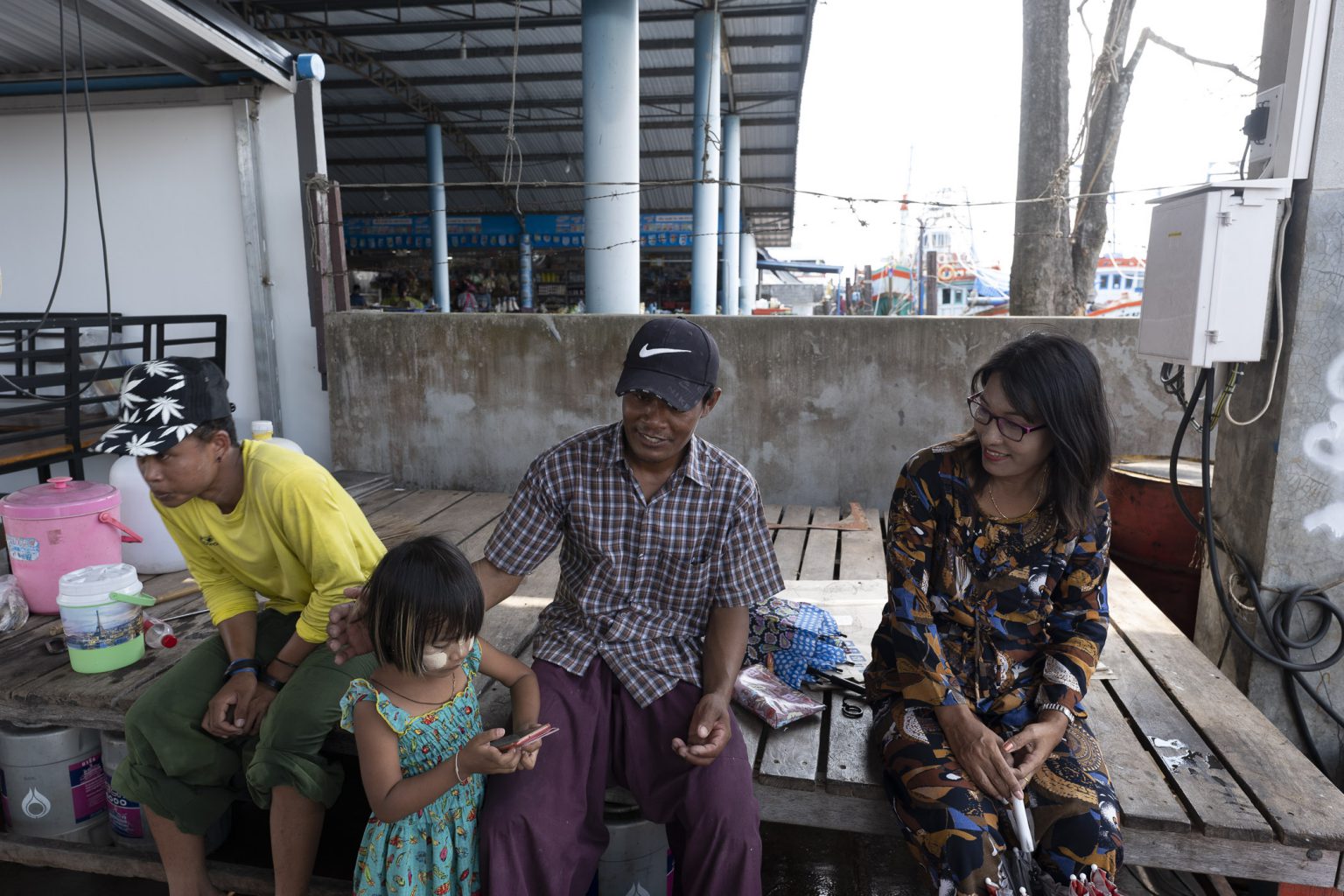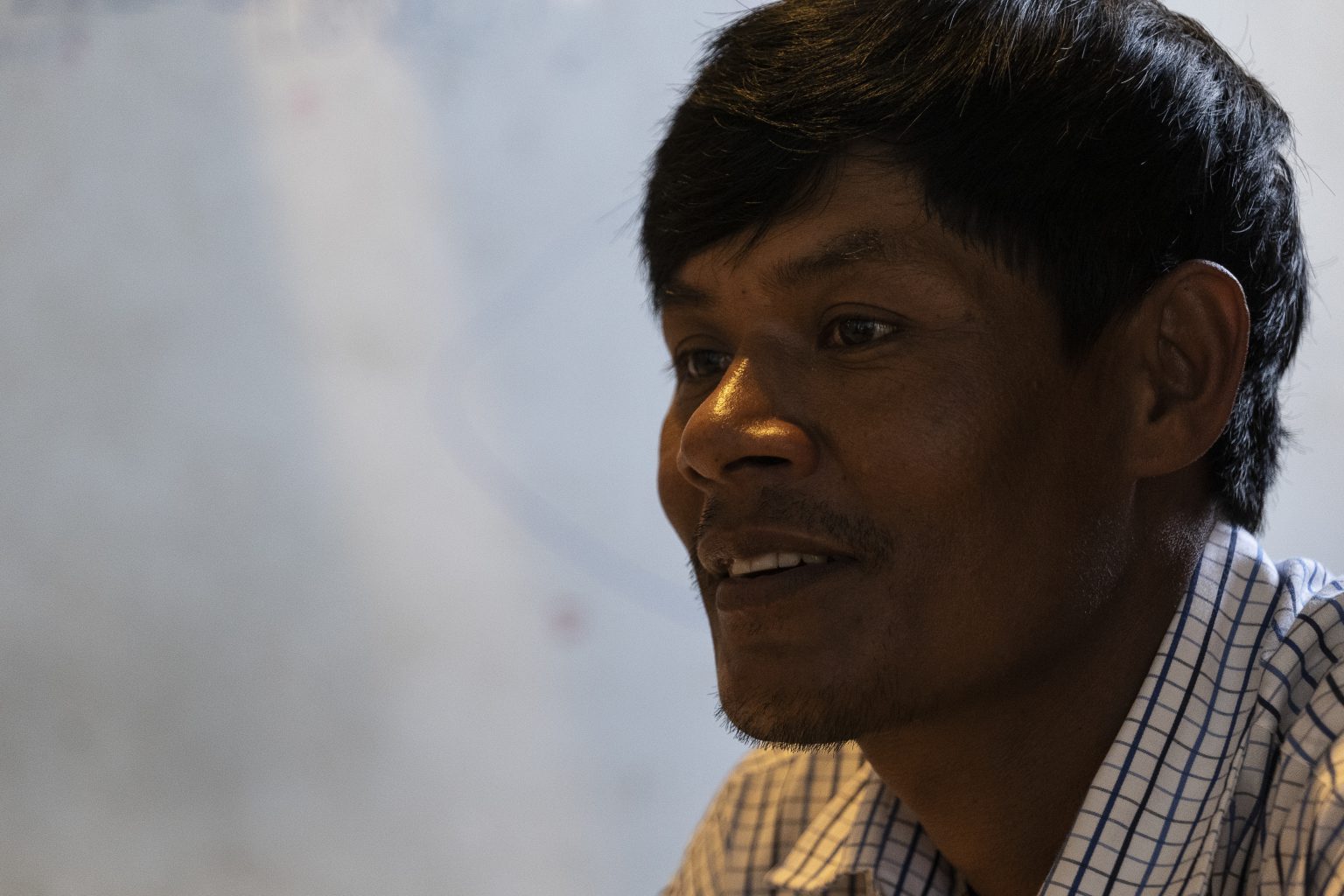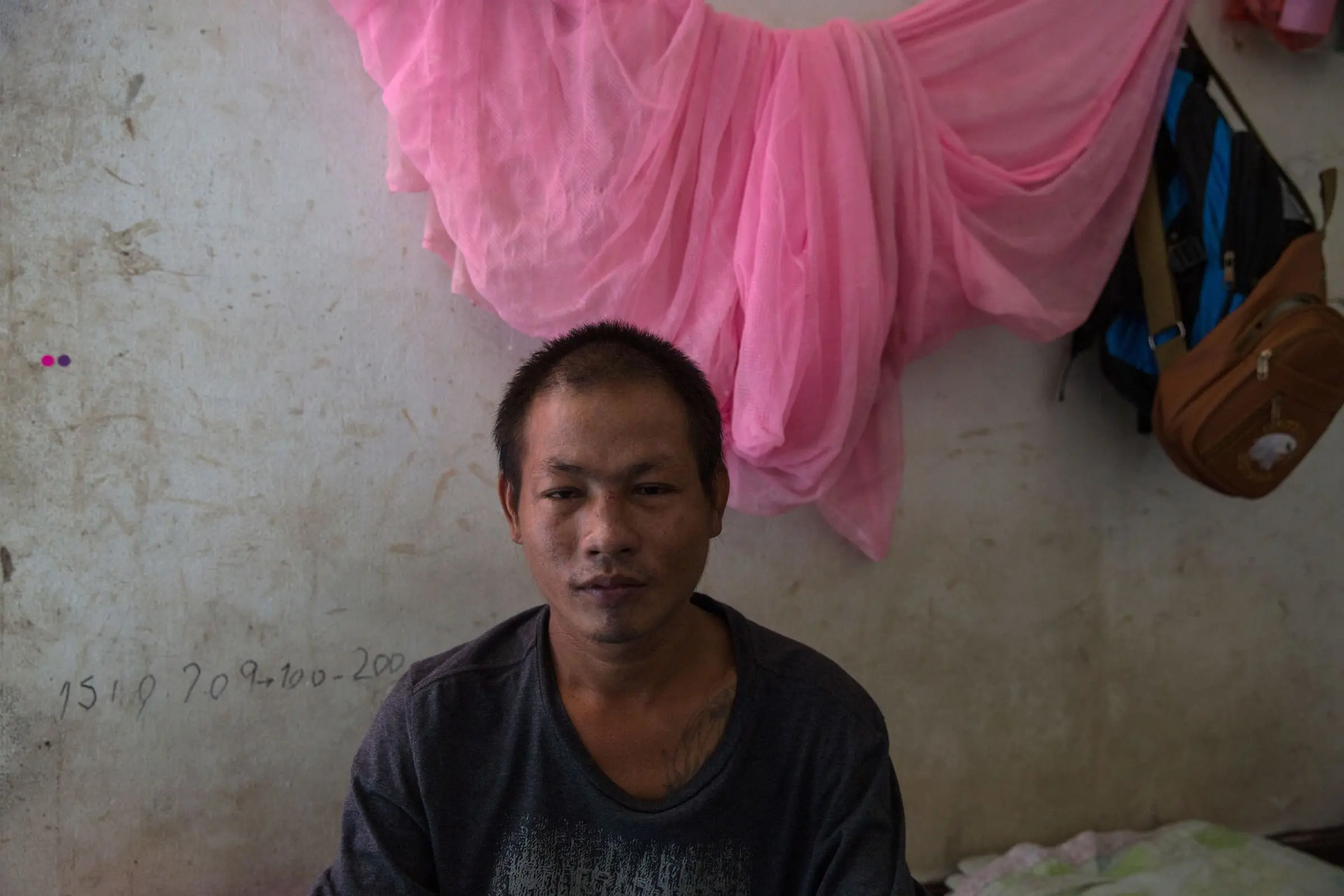Ten years ago, Kyaw Su Ngu, 46-year-old Burmese fisherman, and his wife, Ma Phew crossed the border from Mawlamyine, Myanmar, to Ranong province, Thailand. In Thailand, they traveled to Mahachai in Samut Sakhon province to work in a seafood-processing factory. Disliking the working conditions in the factory, they resettled in Surat Thani province at Don Sak district where they presently live.

Kyaw Su Ngu has worked for five years at the U-sa’s Fish Market. Supervising the fish workers, they typically go out on shrimp boats five to ten days at a time. Leaving only two-three days to enjoy being back on land. Life on a boat is not easy, and the monsoon season makes it harder. Usually starting in November until December, due to the effects of climate change, the season was delayed.
“There were frequent strong winds and waves even in January. Our boat had to return after three-four days as it became extremely dangerous.” Kyaw Su Ngu stated. “Fishing in Myanmar was easier as there was plenty of fish. Although there are fewer fish in Thailand, I earn much more money.”

Learning valuable information on labor rights from his wife, Ma Phew who volunteers with the Raks Thai Foundation, one of USAID Thailand Counter Trafficking in Persons project partners. Raks Thai organized disseminating information sessions on human trafficking and labor rights for migrant workers, employers, and fishing vessel owners.
Along with his wife, Kyaw Su Ngu learned firsthand the positive contribution Raks Thai Foundation has in the fishing community. Through their information sessions, migrant workers began to know their rights, learned where to go for support, and the signs to watch for exploitation and labor abuse practices.
“The main problem in Surat Thani’s fishing industry is the exploitation of migrant workers not being paid, and passports confiscated by their employers, ” says Kyaw.

“Workers had no idea who and where they could turn for help, not receiving the guidance and being unable to communicate Thai, makes the vulnerable workers at risk.”
Kyaw Su Ngu and his wife may not be victims of unfair treatment and exploitation, but they are grateful to Raks Thai for the skills, the power of knowledge, and education provided to protect themselves and others. Seeing firsthand what these training sessions have done for the fishing community, there are now fewer labor abuse situations and mistreatment of workers.
Kyaw Su Ngu has dreams as we all do. “No one wants to be a fish worker all their lives. One day, when I collect enough money, I will go back home, build a house for my parents and do some other business, perhaps become a driver.”
Photo by Suthep Kritsanavarin






